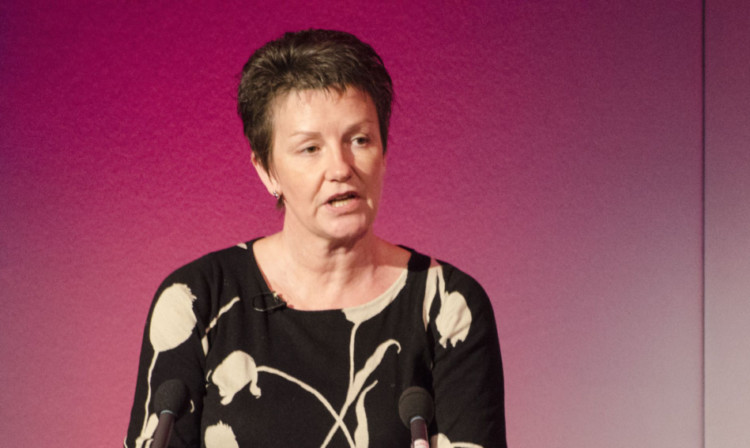When Kate Allum, chief executive of First Milk, took to the podium at the Semex conference in Glasgow, most of the audience were expecting a robust defence of her membership strategy.
Eighteen months ago, as angry dairy farmers held crisis meetings, many were speaking of shifting support to First Milk because of its co-operative status.
Now much of that seems to be forgotten as main competitors Muller Wiseman and Arla mount what appear to be successful recruitment campaigns.
Only last week Arla announced a further 1,300 UK milk producers had become members of Arla Foods amba, the parent body of Arla Foods UK.
Many of those would already have been Arla suppliers but now they are full members of the cooperative, which has its roots in Scandinavia and Germany.
Arla also announced last week it still needed producers with another 300 million litres of milk to join the co-op.
This might seem like a threat to Ms Allum and First Milk but it was not one she chose to tackle at the conference.
Instead, she directed her considerable firepower at the UK Government and its lack of support for dairy products as part of a healthy diet.
The UK, with its well structured dairy sector, is well placed to meet national and global demand for healthy food.
“We should have a massive head start but we don’t,” she said . “The US, Australia and a host of other countries recognise the nutritional value of dairy, to the extent in Australia it is recommended people eat three portions of dairy produce every day.
“You would expect the UK to do the same but instead, the Department of Health’s “smart swap” campaign focuses negatively on dairy, with four out of six suggested swaps involving dairy products.”
“You would have thought pies or sausage rolls would have merited a mention as foods that should be swapped for something else but they are not. Why the focus on dairy and its gold standard foods packed with nutrition?” she asked angrily.
Unfortunately, the person who could have carried her query straight to the UK cabinet had left the building.
Defra Secretary of State Owen Paterson spoke first but citing the need to return to London for a COBRA meeting, left immediately, taking only two questions from the floor and without offering a press briefing.
He nonetheless had a bullish message on trade prospects, estimating cheese, ice cream and yoghurt could help boost the British economy by £500 million through unlocking the key to export success.
With Asian consumers increasingly embracing western diets, global demand for British dairy produce has never been higher but there was a need first to tackle the £1.2 billion dairy trade deficit.
The UK imports 150,000 tonnes of yoghurt annually, six times more than the 25,000 tonnes it exports.
Mr Paterson said: “Last year, UK food and drink exports were worth £18.2 billion, nearly 50% higher than a decade ago and there is room to grow even further.
“The Scottish Dairy review commissioned by the Scottish Government highlighted exploiting export opportunities is essential for growth in the industry. Currently only 8% of Scottish dairy products are sold outside the UK.
“I have been to numerous trade shows, including Shanghai, Moscow, New York and Cologne. At each of them I was banging the drum for UK products and working to break down market access barriers.
“For example, many of the 700 cheeses we produce are household names overseas Dairy Crest’s Cathedral City now sells a quarter of a million packets a year to France.
“As diets become westernised and the middle classes grow, demand for quality dairy products has never been higher.
“The UK has an excellent reputation for traceability and production standards which puts our industry at an advantage, particularly in markets like China that have suffered food scares.
“Mackie’s ice cream is produced on-farm in Aberdeenshire but you can now buy it in Dubai, Singapore and South Korea.
“These examples show opportunities lie in adding value to quality raw material and selling innovative products in growing markets.
“That is why we developed a joint industry and Government Exports Action Plan in 2012. It has been updated to reflect Government and industry’s ambitious commitment to increase exports even further.
“My department is also working with UKTI and the industry to create the first-ever Dairy Exporters Group.”
